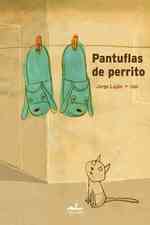- ホーム
- > 洋書
- > 英文書
- > Religion / Ethics
Full Description
The cognitive science of religion does not have its own methodology, and yet from the very beginnings of the discipline, methodology has defined it not only in relation to the general study of religion in the humanities but also to the sciences interested in the mind. Scholars of the cognitive science of religion are using a range of methodologies, borrowing mostly from the cognitive sciences and experimental psychology, but also from biology, archaeology, history, philosophy, linguistics, the social and statistical sciences, neurosciences, and anthropology. In fact, this multi-disciplinarity defines the cognitive science of religion. Such multi-disciplinarity requires hard work and truly interdisciplinary teams, but also continual reflections on and debates about the methodologies being used. In fact, no study of the cognitive science of religion worth its name can rely on only one methodology. Triangulation is standard, but often even more approaches are used.
This book consists of selected papers from the Journal for the Cognitive Science of Religion and the Journal of Cognitive Historiography. Each chapter demonstrates a particular method or group of methods and how those methods advance our knowledge of the religious mind from the ancient past up to today.
Contents
Introduction: Studying the Religious Mind
Armin W. Geertz
Part I. Fieldwork
Chapter One: Go WILD, Not WEIRD
Martha Newson (University of Oxford), Michael Buhrmester (University of Oxford), Dimitris Xygalatas, and Harvey Whitehouse (University of Oxford)
Chapter Two: Cognitively Informed Ethnography: Using Mixed Methods to Capture the Complexity of Religious Phenomena in Two Ecologically Valid Settings
Hugh D. Turpin (Queens University Belfast and University of Oxford) and Mark Stanford (University of Oxford)
Part II. Experimental Study of Religion
Chapter Three: Introduction to Experimental Research of Religion
Dimitris Xygalatas
Chapter Four: The Experimental Study of Religion: or There and Back Again
Jesper Sørensen (Aarhus University) and Kristoffer L. Nielbo
Chapter Five: Fast and Slow: Questions and Observations in the Psychology of Religion
Benjamin Beit-Hallahmi (University of Haifa)
Chapter Six: The Embodiment of Worship: Relations among Postural, Psychological, and Physiological Aspects of Religious Practice
Patty Van Cappellen and Megan E. Edwards (both at Duke University)
Chapter Seven: Past Its Prime? A Methodological Overview and Critique of Religious Priming Research in Social Psychology
Shoko Watanabe (University of Illinois) and Sean M. Laurent (Pennsylvania State University)
Part III. Cognitive Neuroscience
Chapter Eight: Religious Experience in Mediterranean Antiquity
Istvan Czachesz
Chapter Nine: Ritual Mourning in Daniel's Interpretation of Jeremiah's Prophecy
Angela K. Harkins (Boston College)
Chapter Ten: Tours of Heaven in Light of the Neuroscientific Study of Religious Experience
Istvan Czachesz
Chapter Eleven: (Religious) Language and the Decentering Process: McNamara and De Sublimitate on the Ecstatic Effect of Language
Christopher T. Holmes (Emory University)
Chapter Twelve: Do You Need Cognitive Neuroscience to Understand Religious Cognition, Experience and Texts?
Patrick McNamara (Boston University School of Medicine)
Part IV. Cognitive Historiography
Chapter Thirteen: What Is Cognitive Historiography, Anyway? Method, Theory, and a Cross-Disciplinary Decalogue
Leonardo Ambasciano
Chapter Fourteen: The Rites of the Day of Blood (dies sanguinis) in the Graeco-Roman Cult of Cybele and Attis: A Cognitive Historiographical Approach
Panayotis Pachis (Aristotle University)
Chapter Fifteen: The Gendered Deep History of the Bona Dea Cult
Leonardo Ambasciano
Chapter Sixteen: Defilement and Moral Discourse in the Hebrew Bible: An Evolutionary Framework
Yitzhaq Feder (University fo Haifa)
Part V. Big Data
Chapter Seventeen: Exploring the Challenges and Potentialities of the Database of Religious History for Cognitive Historiography
Brenton Sullivan (Colgate University), Michael Muthukrishna (LSE), Frederick S. Tappenden (University of Alberta), and Edward Slingerland (University of British Columbia)
Chapter Eighteen: An Introduction to Seshat: Global History Databank
Part VI. Computational Approaches
Chapter Nineteen: Mining the Past - Data-Intensive Knowledge Discovery in the Study of Historical Textual Traditions
Kristoffer L. Nielbo, Ryan Nichols (California State University), and Edward Slingerland
Chapter Twenty: Method, Theory, and Multi-Agent Artificial Intelligence: Creating Computer Models of Complex Social Interaction
Justin E. Lane (NORCE, Norway)
Chapter Twenty One: The Computational Science of Religion
Justin Lane and F. LeRon Shults (University of Agder)
Part VII. Open Science
Chapter Twenty Two: Advancing the Cognitive Science of Religion through Replication and Open Science
Suzanne Hoogeveen (University of Amsterdam) and Michiel van Elk (VU University)
Chapter Twenty Three: Promoting the Benefits and Clarifying Misconceptions about Preregistration, Preprints, and Open Science for the Cognitive Science of Religion
Christopher Kavanagh (University of Oxford) and Rohan Kapitány (keele University)
Part VIII. Consilience
Chapter Twenty Four: The Arts Transform the Cognitive Science of Religion
Joseph Bulbulia (Victoria University of Wellington)
Chapter Twenty Five: Toward a Second Wave of Consilience in the Cognitive Scientific Study of Religion
Edward Slingerland








